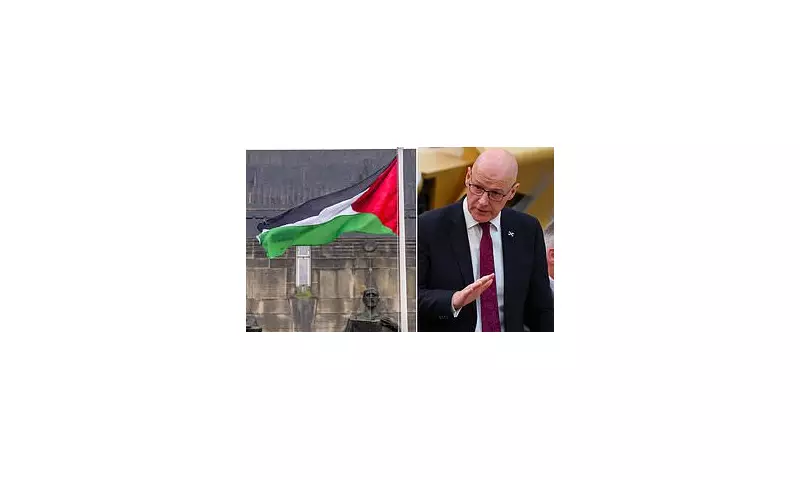
First Minister John Swinney is facing a political firestorm after being accused of spectacularly "ignoring Scotland's problems" to focus on a symbolic Holyrood vote recognising Palestinian statehood.
The controversial move has drawn fierce criticism from opposition parties and policy experts who argue the Scottish Government is prioritising international grandstanding over tackling dire domestic crises engulfing the nation.
Scotland's Mounting Domestic Crises
As MSPs prepared to debate the non-binding motion, Scotland grapples with a perfect storm of challenges:
- A healthcare system in critical condition with record waiting times and overwhelmed A&E departments
- An education system showing declining standards and growing attainment gaps
- Economic stagnation affecting businesses and families across the country
- Ongoing disputes with Westminster over funding and devolved powers
Opposition Parties Unleash Fury
Scottish Conservative leader Douglas Ross launched a blistering attack, stating: "This is a blatant attempt to distract from the SNP's catastrophic failure to manage Scotland's domestic affairs. While our NHS crumbles and educational standards fall, John Swinney chooses to focus on matters beyond his powers rather than doing his actual job."
Labour and Liberal Democrat MSPs echoed these concerns, questioning the timing and purpose of the vote when urgent domestic issues require immediate attention and political capital.
Constitutional Clash and Diplomatic Overreach
The motion has sparked a fresh constitutional confrontation, with legal experts noting that foreign policy remains exclusively reserved to Westminster. The UK Government maintains that international recognition of statehood is a matter for the British Parliament rather than devolved administrations.
Critics argue the move represents a concerning pattern of the Scottish Government overstepping its devolved competencies while neglecting its core responsibilities to the Scottish people.
Political Symbolism Versus Practical Governance
Defenders of the motion claim it demonstrates Scotland's commitment to human rights and international law. However, even some supporters have questioned whether this symbolic gesture justifies diverting attention from the pressing needs of Scottish citizens.
The controversy highlights the ongoing tension between the Scottish Government's international aspirations and its practical responsibilities in governing Scotland's public services and economy.
As the debate continues, many are asking whether Holyrood's priorities align with those of ordinary Scots who are more concerned about healthcare, education, and economic stability than international diplomatic gestures.





